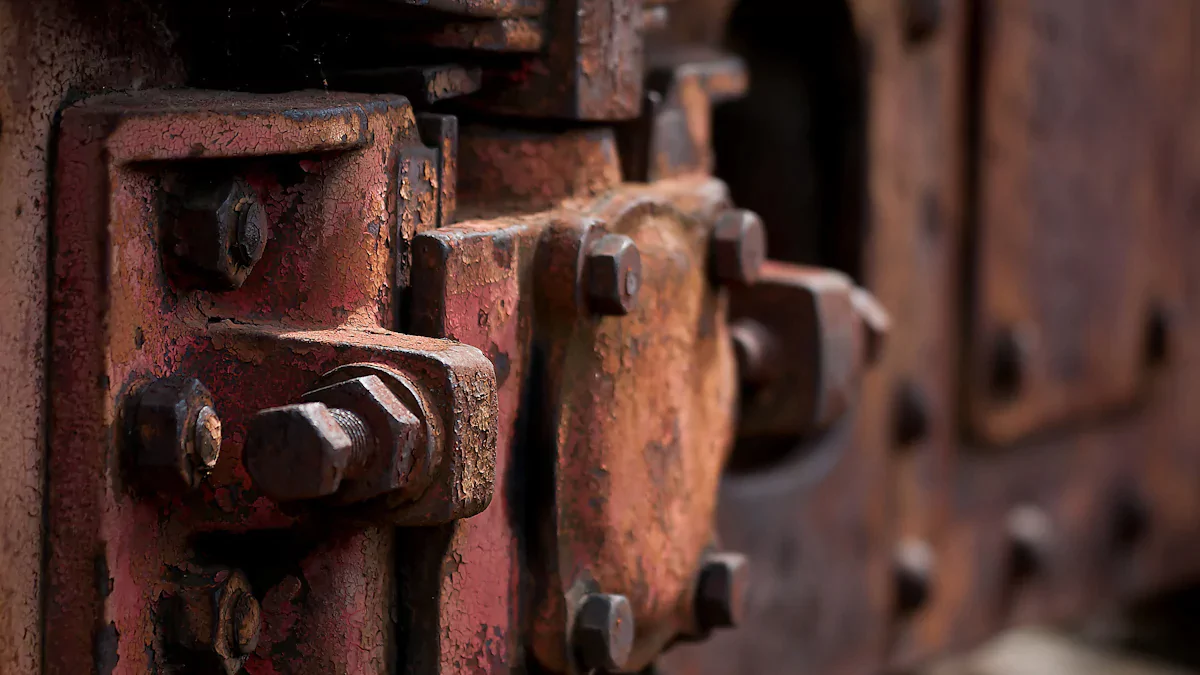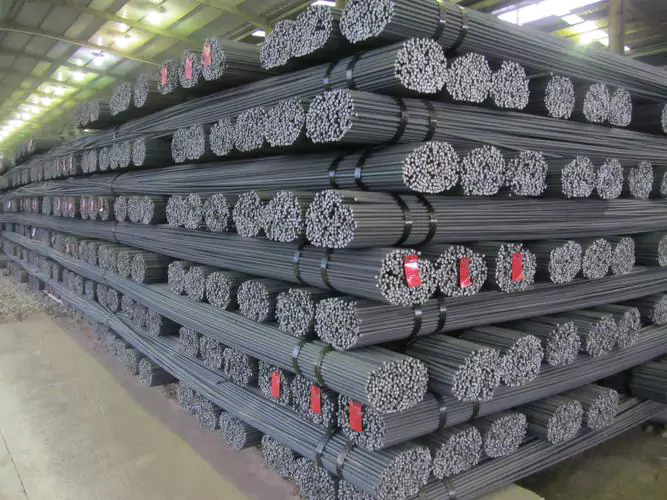
1. Enhanced Strength
When it comes to steel rebar, its unparalleled strength plays a pivotal role in reinforcing concrete structures. By enhancing the tensile strength of concrete, steel rebar ensures that buildings and bridges can withstand dynamic forces and heavy loads without compromising their stability. This critical aspect highlights the importance of using steel rebar in construction projects where durability is non-negotiable.
Comparison with Regular Steel
In comparison to traditional steel options, steel rebar stands out for its exceptional tensile strength properties. While regular steel may provide some level of reinforcement, steel rebar goes above and beyond by offering superior structural integrity. The enhanced strength of steel rebar makes it a preferred choice for engineers and architects looking to create robust and long-lasting structures.
Applications Requiring High Tensile Strength
The applications that demand high tensile strength benefit significantly from the use of steel rebar. From skyscrapers to bridges, these structures rely on the resilience of steel rebar to ensure their longevity and safety. The ability of steel rebar to withstand immense pressure and tension makes it an indispensable material in projects where structural stability is paramount.
2. Corrosion Resistance
Steel rebar, a fundamental component in construction projects, faces challenges related to corrosion over time. The susceptibility of steel rebar to corrosion, particularly in coastal regions or areas with high humidity levels, underscores the importance of addressing this issue effectively.
Non-Corrosive Properties
Steel rebar offers exceptional resistance to corrosion, making it a viable alternative to traditional steel options.
Longevity in Structures
The implementation of non-corrosive materials like steel rebar contributes significantly to the longevity and durability of structures. By mitigating the impact of corrosion, these materials enhance the structural integrity and lifespan of buildings and infrastructure projects.
Maintenance Cost Reduction
Investing in materials with non-corrosive properties can lead to substantial cost savings in maintenance and repair efforts. While the initial cost of steel rebar may be higher than traditional steel alternatives, the long-term benefits in terms of reduced maintenance expenses make it a financially prudent choice for construction projects.
Environmental Impact
In addition to its practical advantages, the use of non-corrosive materials like steel rebar aligns with sustainability goals and environmental considerations within the construction industry.
Sustainability
The sustainability aspect of utilizing materials that resist corrosion is crucial for reducing the environmental footprint of construction activities. By choosing sustainable options like steel rebar, builders can contribute to eco-friendly practices and promote a greener approach to infrastructure development. Compared with round steel, steel rebar performs better in sustainability.
Reduced Environmental Degradation
Materials that exhibit high resistance to corrosion play a vital role in minimizing environmental degradation caused by deteriorating structures. The longevity and durability provided by steel rebar contribute to maintaining structural stability over time, reducing the need for frequent replacements that can harm the environment.
3. Durability
Long-Term Performance
Steel rebar has a proven track record of enhancing the longevity and robustness of structures over time. Its incorporation into construction projects ensures that buildings and infrastructure maintain their structural integrity for decades. The historical evolution of steel rebar from simple iron rods to intricately designed reinforcements showcases its enduring impact on the durability of modern constructions.
Structural Integrity Over Time
The utilization of steel rebar in various architectural marvels has solidified its reputation for preserving structural integrity over extended periods. From reinforcing foundations to supporting skyscrapers, steel rebar plays a crucial role in withstanding environmental stresses and dynamic loads, ensuring the stability and safety of diverse structures.
Examples of Durable Structures
Throughout history, numerous iconic structures have stood the test of time due to the durability provided by steel rebar. In the 18th century, steel rebar was instrumental in constructing the Leaning Tower of Nevyansk in Russia, showcasing its ability to support complex architectural designs while maintaining long-lasting strength.
Resistance to Environmental Factors
The resilience of steel rebar extends beyond structural performance to withstand various environmental challenges effectively. Its adaptability to different climates and resistance to chemical exposure make it a reliable choice for construction projects in diverse settings.
Performance in Different Climates
From arid deserts to humid coastal regions, steel rebar demonstrates exceptional performance under varying climatic conditions. Its ability to resist corrosion and degradation due to weather extremes ensures that structures remain stable and secure regardless of environmental factors.
Resistance to Chemical Exposure
In environments where chemical exposure poses a threat to traditional materials, steel rebar shines as a durable solution. The molecular composition of steel rebar enables it to withstand chemical interactions without compromising its strength or integrity, making it an ideal choice for projects requiring resistance to corrosive substances.
4. Versatility
Steel Rebar’s versatility in construction projects is unmatched, offering a wide range of applications across various structures. Its adaptability to diverse project requirements and engineering specifications makes it a preferred choice for builders seeking durability and reliability.
Applications in Various Structures
Residential Buildings
Steel Rebar, available in different grades and sizes, caters to the unique needs of residential constructions.
Its superior strength and longevity make it ideal for reinforcing foundations and supporting the overall structure.
The adaptability of Steel Rebar ensures that residential buildings withstand environmental stresses and maintain structural integrity over time.
Commercial Buildings
In commercial constructions, Steel Rebar plays a crucial role in enhancing the stability of high-rise buildings and office complexes.
The use of Steel Rebar in columns, beams, and slabs ensures structural resilience against dynamic loads and external forces.
Its versatility allows architects and engineers to design innovative commercial spaces with confidence in long-term performance.
Adaptability to Design
Customization Options
Steel Rebar offers customization options to meet specific project requirements, allowing for tailored solutions in construction.
Builders can choose from various configurations and grades of Steel Rebar to optimize structural reinforcement based on design specifications.
The flexibility of Steel Rebar enables creative design possibilities while ensuring compliance with safety standards.
Architectural Flexibility
The architectural flexibility of Steel Rebar enables intricate designs without compromising structural strength.
From curved structures to complex geometries, Steel Rebar provides the necessary support for ambitious architectural projects.
Its compatibility with different building materials enhances design versatility, making it a versatile choice for architects pushing boundaries in construction innovation.
5. Cost-Effectiveness
Initial Investment vs. Long-Term Savings
When considering construction materials, the choice between steel rebar and steel bars is crucial for long-term project success. While steel bars may seem more cost-effective initially, the superior performance and extended lifespan of steel rebar make it a valuable investment in construction projects.
Cost Comparison with Regular Steel
Steel bars, with their simpler manufacturing process and easier installation, often come at a lower price point than steel rebar. However, the enhanced durability and structural reinforcement provided by steel rebar justify its slightly higher initial cost.
Return on Investment
Investing in steel rebar yields significant returns over time due to its longevity and robustness in various structures. The upfront investment in steel rebar pays off through reduced maintenance expenses and the assurance of structural integrity for decades to come.
Reduced Maintenance Costs
In construction projects, minimizing maintenance costs is essential for budget management and long-term sustainability. Choosing materials like steel rebar can lead to substantial savings in maintenance efforts over the lifespan of a structure.
Case Studies
Numerous case studies have demonstrated the cost-effectiveness of using steel rebar in construction projects. By comparing maintenance expenses and structural performance between traditional steel options and steel rebar, these studies highlight the financial benefits of investing in durable materials.
Financial Benefits
The financial advantages of selecting steel rebar extend beyond initial construction costs. With lower maintenance requirements and fewer replacements needed over time, steel rebar proves to be a cost-effective solution that ensures the longevity and safety of buildings and infrastructure.
The longevity and great strength of steel rebar make it the best option for construction jobs. Given its remarkable tensile strength, it finds use in a wide range of fields. Moreover, long-term performance is guaranteed and maintenance costs are greatly reduced by the exceptional resistance of steel rebar to corrosion and weathering.
Steel rebar and other carbon steel are supplied worldwide by Qingdao Sunrise New Materials Co., Ltd. (Sunrise New Materials). Besides carbon steel, high-quality stainless steel is also supplied by Sunrise New Materials. The company is committed to offer its worldwide customer base reliable steel and metal product supply choices. Full-service provider Sunrise New Materials has extensive industry understanding and a large supply chain network.
Adhering to the corporate spirit of “being a person, building a business, and serving the country with the will of steel,” Sunrise New Materials actively promotes the high-end transformation of steel intelligent manufacturing. They focus on quality, high-end, green, and ecological concepts, aiming to become a benchmark enterprise in the industry and contribute to the development of the steel industry worldwide.








